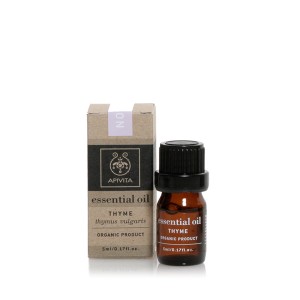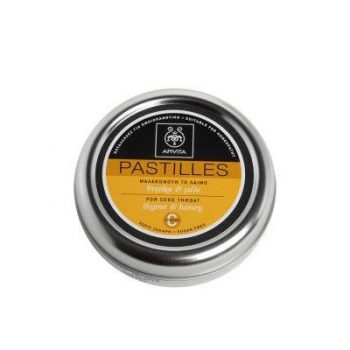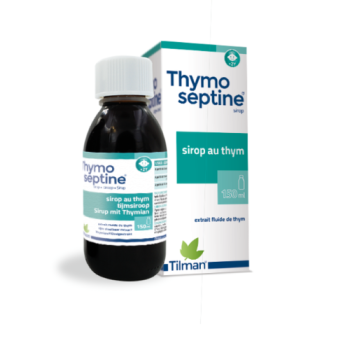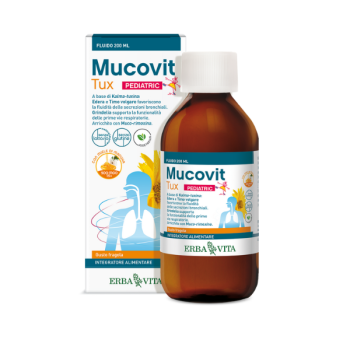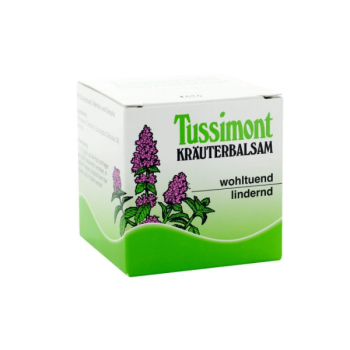Thyme (thymus vulgaris) has been known for ages in the Mediterranean kitchen and it is widely used in cooking and for ornamental purposes. It looks nice in your garden or in a flower pot, smells great and its fragrant flowers attract bees.
By the way, thyme honey is a great souvenir from Cyprus or Greece – it is full bodied, has an intense aroma and a distinct amber color.
In cooking, thyme pairs greatly with meat, chicken, soups and especially well with Cyprus potatoes! Many centuries ago ancient Romans were using it as a flavouring for cheeses and alcoholic drinks.
Apart from this, thyme has always been used as a traditional herbal remedy.
It is believed that essential oils, contained in thyme leaves, have a positive effect on mood, strengthen nerves and can even combat depression. Ancient Greeks thought that it helps you to cope with fears and gives you courage. If you want to test this theory, you can use fresh or dried herbs in cooking, make a cup of thyme tea or use a few drops of thyme essential oil in the aromatherapy burner.
Thyme can be beneficial for skin health – a substance thymol, contained in it, has been proven to have antifungal, antibacterial properties, now it is produced in industrial quantities and is used for the manufacture of fungicides, medical disinfectants and virucides. Some health practitioners recommend using diluted thyme oil (undiluted can not be applied directly to skin) for the treatment of toenail fungus.
But the most common by far traditional use of thyme – treatment of respiratory tract diseases. Modern studies show that thyme is effective in case of bronchitis, whooping cough and upper respiratory inflammation.
Plant phenols (such as thymol and carvacrol) show powerful anti-spasmodic activity, which makes them effective cough suppressants, and expectorant qualities help thin the mucus. That’s why thyme is a frequent component of natural cough preparations.
Having antibacterial qualities, thyme helps to reduce inflammation and is effective as a remedy for sore throat and oral cavity. This traditional use has also been proved effective by modern studies.
Actually, modern research has shown that the antibacterial activity of thyme essential oil is in some cases higher than that of antibiotics!
It is easy to enjoy the health benefits of thyme these days: the pharmaceutical industry uses modern technologies to get the maximum of the plant active ingredients and add them to different pharmaceutical forms. You can choose from a wide range of thyme-based cold remedies: syrups for adults and kids, sore throat sprays, soothing lozenges and warming ointments.

